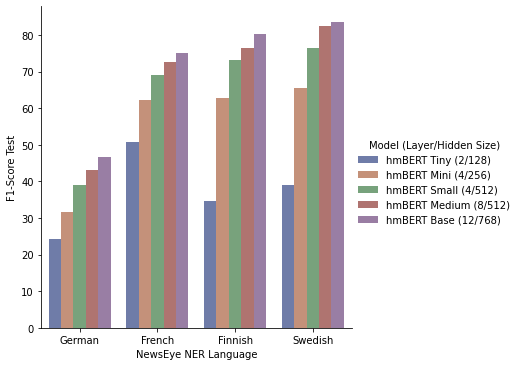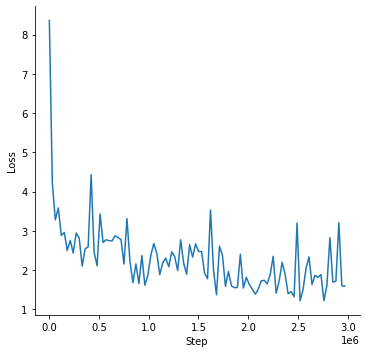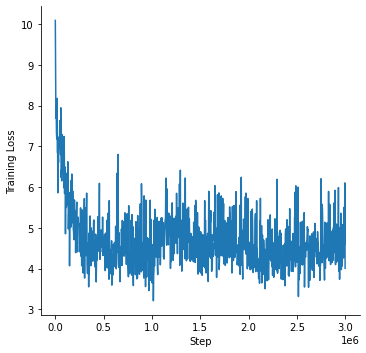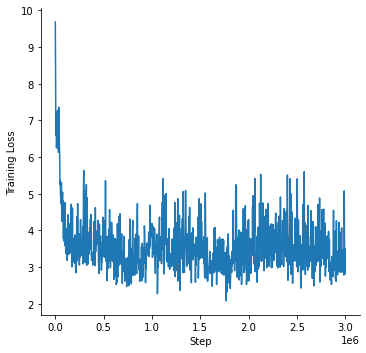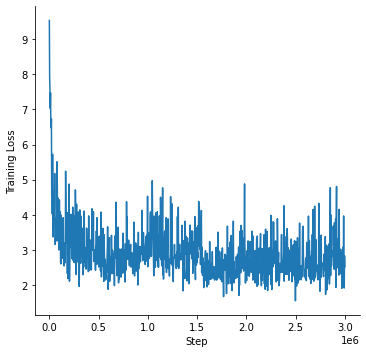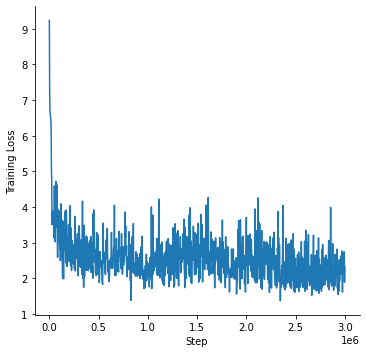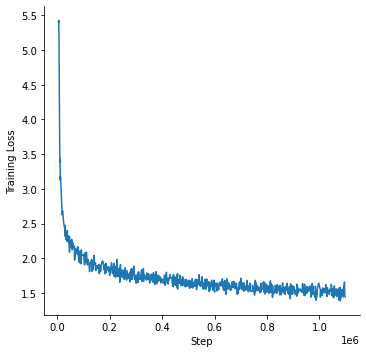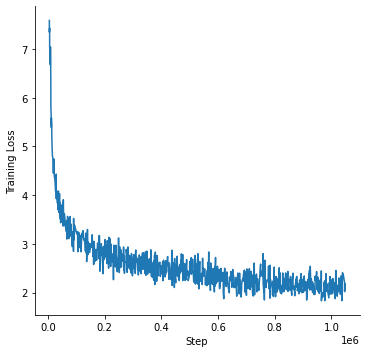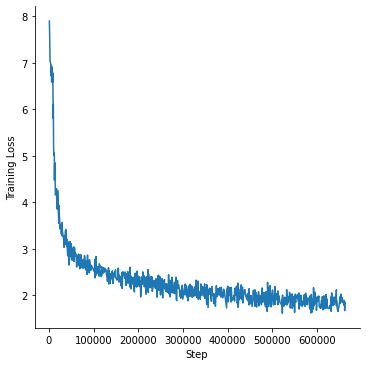language: multilingual
license: mit
widget:
- text: and I cannot conceive the reafon why [MASK] hath
- text: Täkäläinen sanomalehdistö [MASK] erit - täin
- text: Det vore [MASK] häller nödvändigt att be
- text: Comme, à cette époque [MASK] était celle de la
- text: In [MASK] an atmosphärischen Nahrungsmitteln
Historic Language Models (HLMs)
Languages
Our Historic Language Models Zoo contains support for the following languages - incl. their training data source:
| Language | Training data | Size |
|---|---|---|
| German | Europeana | 13-28GB (filtered) |
| French | Europeana | 11-31GB (filtered) |
| English | British Library | 24GB (year filtered) |
| Finnish | Europeana | 1.2GB |
| Swedish | Europeana | 1.1GB |
Models
At the moment, the following models are available on the model hub:
| Model identifier | Model Hub link |
|---|---|
dbmdz/bert-base-historic-multilingual-cased |
here |
dbmdz/bert-base-historic-english-cased |
here |
dbmdz/bert-base-finnish-europeana-cased |
here |
dbmdz/bert-base-swedish-europeana-cased |
here |
We also released smaller models for the multilingual model:
| Model identifier | Model Hub link |
|---|---|
dbmdz/bert-tiny-historic-multilingual-cased |
here |
dbmdz/bert-mini-historic-multilingual-cased |
here |
dbmdz/bert-small-historic-multilingual-cased |
here |
dbmdz/bert-medium-historic-multilingual-cased |
here |
Notice: We have released language models for Historic German and French trained on more noisier data earlier - see this repo for more information:
| Model identifier | Model Hub link |
|---|---|
dbmdz/bert-base-german-europeana-cased |
here |
dbmdz/bert-base-french-europeana-cased |
here |
Corpora Stats
German Europeana Corpus
We provide some statistics using different thresholds of ocr confidences, in order to shrink down the corpus size and use less-noisier data:
| OCR confidence | Size |
|---|---|
| 0.60 | 28GB |
| 0.65 | 18GB |
| 0.70 | 13GB |
For the final corpus we use a OCR confidence of 0.6 (28GB). The following plot shows a tokens per year distribution:
French Europeana Corpus
Like German, we use different ocr confidence thresholds:
| OCR confidence | Size |
|---|---|
| 0.60 | 31GB |
| 0.65 | 27GB |
| 0.70 | 27GB |
| 0.75 | 23GB |
| 0.80 | 11GB |
For the final corpus we use a OCR confidence of 0.7 (27GB). The following plot shows a tokens per year distribution:
British Library Corpus
Metadata is taken from here. Stats incl. year filtering:
| Years | Size |
|---|---|
| ALL | 24GB |
| >= 1800 && < 1900 | 24GB |
We use the year filtered variant. The following plot shows a tokens per year distribution:
Finnish Europeana Corpus
| OCR confidence | Size |
|---|---|
| 0.60 | 1.2GB |
The following plot shows a tokens per year distribution:
Swedish Europeana Corpus
| OCR confidence | Size |
|---|---|
| 0.60 | 1.1GB |
The following plot shows a tokens per year distribution:
All Corpora
The following plot shows a tokens per year distribution of the complete training corpus:
Multilingual Vocab generation
For the first attempt, we use the first 10GB of each pretraining corpus. We upsample both Finnish and Swedish to ~10GB. The following tables shows the exact size that is used for generating a 32k and 64k subword vocabs:
| Language | Size |
|---|---|
| German | 10GB |
| French | 10GB |
| English | 10GB |
| Finnish | 9.5GB |
| Swedish | 9.7GB |
We then calculate the subword fertility rate and portion of [UNK]s over the following NER corpora:
| Language | NER corpora |
|---|---|
| German | CLEF-HIPE, NewsEye |
| French | CLEF-HIPE, NewsEye |
| English | CLEF-HIPE |
| Finnish | NewsEye |
| Swedish | NewsEye |
Breakdown of subword fertility rate and unknown portion per language for the 32k vocab:
| Language | Subword fertility | Unknown portion |
|---|---|---|
| German | 1.43 | 0.0004 |
| French | 1.25 | 0.0001 |
| English | 1.25 | 0.0 |
| Finnish | 1.69 | 0.0007 |
| Swedish | 1.43 | 0.0 |
Breakdown of subword fertility rate and unknown portion per language for the 64k vocab:
| Language | Subword fertility | Unknown portion |
|---|---|---|
| German | 1.31 | 0.0004 |
| French | 1.16 | 0.0001 |
| English | 1.17 | 0.0 |
| Finnish | 1.54 | 0.0007 |
| Swedish | 1.32 | 0.0 |
Final pretraining corpora
We upsample Swedish and Finnish to ~27GB. The final stats for all pretraining corpora can be seen here:
| Language | Size |
|---|---|
| German | 28GB |
| French | 27GB |
| English | 24GB |
| Finnish | 27GB |
| Swedish | 27GB |
Total size is 130GB.
Smaller multilingual models
Inspired by the "Well-Read Students Learn Better: On the Importance of Pre-training Compact Models" paper, we train smaller models (different layers and hidden sizes), and report number of parameters and pre-training costs:
| Model (Layer / Hidden size) | Parameters | Pre-Training time |
|---|---|---|
| hmBERT Tiny ( 2/128) | 4.58M | 4.3 sec / 1,000 steps |
| hmBERT Mini ( 4/256) | 11.55M | 10.5 sec / 1,000 steps |
| hmBERT Small ( 4/512) | 29.52M | 20.7 sec / 1,000 steps |
| hmBERT Medium ( 8/512) | 42.13M | 35.0 sec / 1,000 steps |
| hmBERT Base (12/768) | 110.62M | 80.0 sec / 1,000 steps |
We then perform downstream evaluations on the multilingual NewsEye dataset:
Pretraining
Multilingual model - hmBERT Base
We train a multilingual BERT model using the 32k vocab with the official BERT implementation on a v3-32 TPU using the following parameters:
python3 run_pretraining.py --input_file gs://histolectra/historic-multilingual-tfrecords/*.tfrecord \
--output_dir gs://histolectra/bert-base-historic-multilingual-cased \
--bert_config_file ./config.json \
--max_seq_length=512 \
--max_predictions_per_seq=75 \
--do_train=True \
--train_batch_size=128 \
--num_train_steps=3000000 \
--learning_rate=1e-4 \
--save_checkpoints_steps=100000 \
--keep_checkpoint_max=20 \
--use_tpu=True \
--tpu_name=electra-2 \
--num_tpu_cores=32
The following plot shows the pretraining loss curve:
Smaller multilingual models
We use the same parameters as used for training the base model.
hmBERT Tiny
The following plot shows the pretraining loss curve for the tiny model:
hmBERT Mini
The following plot shows the pretraining loss curve for the mini model:
hmBERT Small
The following plot shows the pretraining loss curve for the small model:
hmBERT Medium
The following plot shows the pretraining loss curve for the medium model:
English model
The English BERT model - with texts from British Library corpus - was trained with the Hugging Face JAX/FLAX implementation for 10 epochs (approx. 1M steps) on a v3-8 TPU, using the following command:
python3 run_mlm_flax.py --model_type bert \
--config_name /mnt/datasets/bert-base-historic-english-cased/ \
--tokenizer_name /mnt/datasets/bert-base-historic-english-cased/ \
--train_file /mnt/datasets/bl-corpus/bl_1800-1900_extracted.txt \
--validation_file /mnt/datasets/bl-corpus/english_validation.txt \
--max_seq_length 512 \
--per_device_train_batch_size 16 \
--learning_rate 1e-4 \
--num_train_epochs 10 \
--preprocessing_num_workers 96 \
--output_dir /mnt/datasets/bert-base-historic-english-cased-512-noadafactor-10e \
--save_steps 2500 \
--eval_steps 2500 \
--warmup_steps 10000 \
--line_by_line \
--pad_to_max_length
The following plot shows the pretraining loss curve:
Finnish model
The BERT model - with texts from Finnish part of Europeana - was trained with the Hugging Face JAX/FLAX implementation for 40 epochs (approx. 1M steps) on a v3-8 TPU, using the following command:
python3 run_mlm_flax.py --model_type bert \
--config_name /mnt/datasets/bert-base-finnish-europeana-cased/ \
--tokenizer_name /mnt/datasets/bert-base-finnish-europeana-cased/ \
--train_file /mnt/datasets/hlms/extracted_content_Finnish_0.6.txt \
--validation_file /mnt/datasets/hlms/finnish_validation.txt \
--max_seq_length 512 \
--per_device_train_batch_size 16 \
--learning_rate 1e-4 \
--num_train_epochs 40 \
--preprocessing_num_workers 96 \
--output_dir /mnt/datasets/bert-base-finnish-europeana-cased-512-dupe1-noadafactor-40e \
--save_steps 2500 \
--eval_steps 2500 \
--warmup_steps 10000 \
--line_by_line \
--pad_to_max_length
The following plot shows the pretraining loss curve:
Swedish model
The BERT model - with texts from Swedish part of Europeana - was trained with the Hugging Face JAX/FLAX implementation for 40 epochs (approx. 660K steps) on a v3-8 TPU, using the following command:
python3 run_mlm_flax.py --model_type bert \
--config_name /mnt/datasets/bert-base-swedish-europeana-cased/ \
--tokenizer_name /mnt/datasets/bert-base-swedish-europeana-cased/ \
--train_file /mnt/datasets/hlms/extracted_content_Swedish_0.6.txt \
--validation_file /mnt/datasets/hlms/swedish_validation.txt \
--max_seq_length 512 \
--per_device_train_batch_size 16 \
--learning_rate 1e-4 \
--num_train_epochs 40 \
--preprocessing_num_workers 96 \
--output_dir /mnt/datasets/bert-base-swedish-europeana-cased-512-dupe1-noadafactor-40e \
--save_steps 2500 \
--eval_steps 2500 \
--warmup_steps 10000 \
--line_by_line \
--pad_to_max_length
The following plot shows the pretraining loss curve:
Acknowledgments
Research supported with Cloud TPUs from Google's TPU Research Cloud (TRC) program, previously known as TensorFlow Research Cloud (TFRC). Many thanks for providing access to the TRC ❤️
Thanks to the generous support from the Hugging Face team, it is possible to download both cased and uncased models from their S3 storage 🤗






